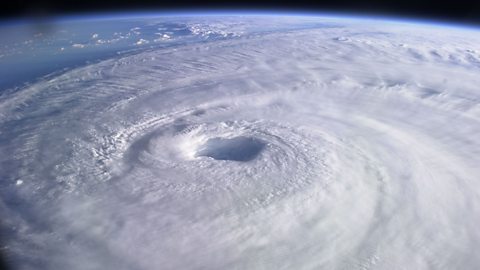Do you struggle to decide what to eat for your evening meal? Imagine having to plan what to eat whilst you are up in space!
When you think of space food, you might think of a very basic dehydrated or tube based meal that you have to quickly scoff before it floats away. In reality, the way astronauts eat and the variety of food has progressed massively since the early days of space missions.
This week (4-10 October 2024) marks the start of World Space Week, so ±«Óătv Bitesize donned their jazziest spacesuit and spoke to Dr. Sonja Brungs, a crew support engineer for the European Space Agency (ESA), all about astronauts and the food they take with them.
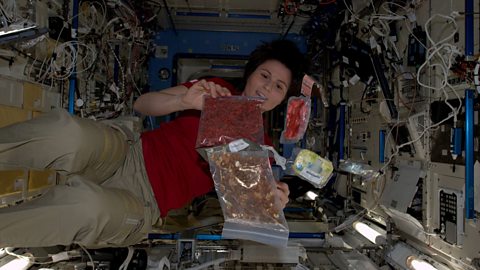 Image source, ESA/NASA
Image source, ESA/NASADecisions, decisions…
If you go out for a meal, do you like to look at the menu in advance? Astronauts do pretty much the same before they go on a space mission as they get to pick some of the meals they take with them.
Adults on Earth are recommended to consume around 2,000 calories per day, but astronauts are expected to eat 3,000 calories every day in space and two thirds of that calorie intake will come from a menu that is preselected by NASA. If they are travelling with the ESA, the other third comes from meals that the crew can pick themselves.
Dr. Brungs said: “There are 200 different food items they can choose [from] before they go on ISS and they have different tasting sessions where they can try different food and make a choice.”
An example of a night-time meal for an astronaut would be a soup starter, chicken masala with rice for their main and to round off the evening, some dark chocolate or a mango salad.
Dr. Sonja Brungs also mentioned that taste buds change in space: “It’s similar to when we have a cold and we don’t taste as much because our nose is clogged. The food in general is very spicy and they have some hot sauce so they can make some adjustments to the food to make it taste great.”
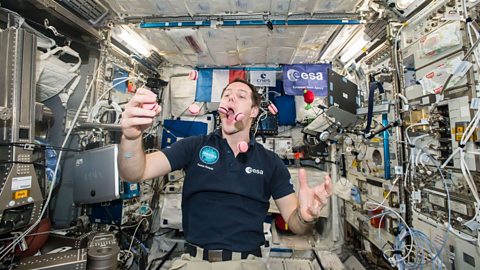 Image source, ESA/NASA
Image source, ESA/NASA±«Óătv comforts
The food we eat can have a massive impact on our feelings and wellbeing. Psychological health is important to astronauts, because they work in such extreme conditions and can spend months away from their families and friends.
Dr. Brungs revealed that food is very important to the astronauts and is one of the things they look forward to each day. Dr. Brungs also mentioned how the crew have the option to pick food that reminds them of home, or simply food they love: “It’s something that is only produced for them, something that they really appreciate and can also share with crew members.”
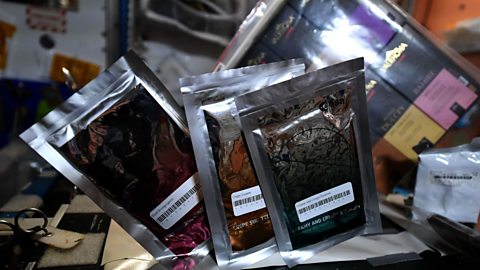 Image source, ESA/NASA – T. Pesquet
Image source, ESA/NASA – T. PesquetHow do you cook in space?
So how do astronauts actually cook in the near-weightless environment?
Astronauts who took part in Project Mercury, the first human spaceflight program of the United States that took place from 1958-1963, had to eat food in bite-sized cubes or freeze-dried powders which didn’t taste that great. These days, astronauts have more options, including packaged food that is then exposed to heat food and natural form foods.
Dr. Brungs said: “Thermostabilized food you can just heat up in a food warmer, open the pouch and eat it right away. Freeze-dried food needs to be rehydrated, so they just add hot water and let it sit for a couple of minutes and then they can eat it from the pouch, same as soups. Soup would be consumed with a straw because of where gravity seems to be very small, for example in space which makes consuming liquids difficult.”
Natural form foods such as chocolate, nuts and biscuits can just be eaten as they are.
 Image source, NASA/ESA
Image source, NASA/ESAChristmas dinner in space…
Christmas dinner can be a big deal for some people on Earth, indulging in lots of rich food and then falling asleep and luckily, astronauts don’t have to miss out on this festive experience.
Dr. Brungs shared with us: “They have their dinner together where they sit and can choose their special food just for this occasion. Usually there’s not one meal feeding all of them because the individual needs are all different and everyone has a different taste, but they definitely get some extra food on these days.”
Speaking of celebrations, what about birthdays and other events? Thomas Pesquet, a French astronaut, celebrated his birthday in space with a birthday cake. Other holidays such as Independence Day and Thanksgiving are also celebrated with food in space.
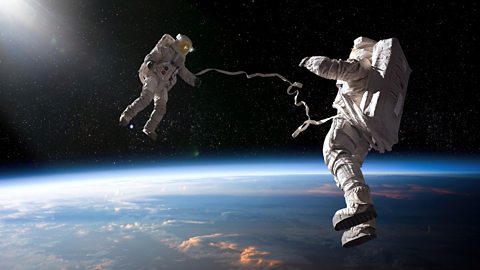
Floating forwards
When we think of space travel and discovery we think of the future and perhaps what we will find in the universe. Space food has changed over the years but moonwalking forwards, what further changes might we see?
Dr. Brungs told us: “We have to think about resources and currently our food is producing a lot of waste in terms of packaging material. When we go to Mars, we want to travel light and not have too much waste.”
This article was published in October 2024
Looking for quizzes, amazing stories and fun facts?
Bitesize Topical has it all!

Five times songs got things about space wrong
Can you really surf the sun? Is it worth waiting for a star to fall?
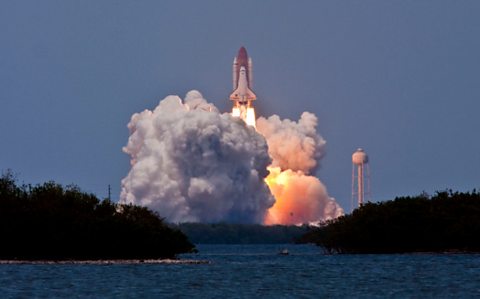
Four things we learned from Earth in Space
Those amazing aerial views have something to teach us.
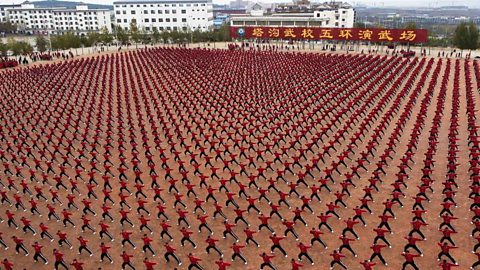
What on Earth can we see from space?
Spoiler alert: it's not the Great Wall of China...
